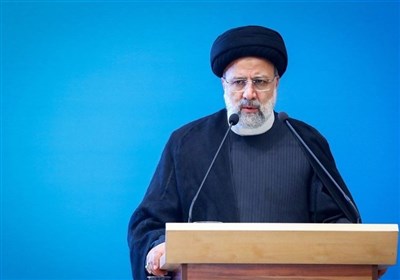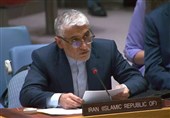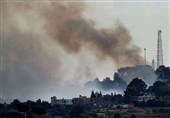Australian Leader Vague on Fate of Asylum Seekers
TEHRAN (Tasnim) ŌĆō The future of asylum seekers languishing at an Australian-run detention center in Papua New Guinea remained in doubt Saturday, with the leaders of both countries declining to provide details about what will happen to the men if a deal to resettle them in the US falls through.
Australian Prime Minister Malcolm Turnbull said during a visit to the Pacific island nation that Papua New Guinea had made "significant progress" toward resettling the nearly 900 men being held at the Manus Island detention center, which is slated to close by the end of the year. But Turnbull dodged questions about exactly where the government plans to send those men if the US refuses to accept them under a deal struck by the Obama administration.
Australia will not settle any asylum seekers who try to arrive by boat - a policy that the government says dissuades migrants from attempting the dangerous and occasionally deadly ocean crossing from Indonesia. Australia instead pays Papua New Guinea and the Pacific island nation of Nauru to house asylum seekers in detention camps that have been plagued by reports of abuse and draconian conditions.
"We are working to solutions, endurable solutions, of people who have been detained here and Nauru," Turnbull told reporters after meeting with Papua New Guinea's prime minister, Peter O'Neill. "Working with third countries, most notably, of course, the United States, to that regard. We'll take this process one step at a time."
In April 2016, O'Neill said he would close the Manus center after the nation's Supreme Court ruled that detaining asylum seekers and refugees there was a violation of their constitutional right to personal liberty. The decision sent Australian officials scrambling to find a place to resettle the detainees, AP reported.
Australia thought it had finally solved the problem when the Obama administration said the US would accept up to 1,250 refugees living on Nauru and Manus. But President Donald Trump was infuriated by the deal, dubbing it "dumb" and throwing the entire plan into doubt. Trump eventually agreed to honor the deal, but has said the refugees will be subjected to "extreme vetting" before they are accepted. There are few details on what that would entail.
The refugees have the option of resettling in Papua New Guinea, but few have agreed to do so. The vast majority have expressed concerns about a lack of job opportunities in the impoverished country, as well as safety fears.
"We cannot force people in a resettlement exercise," O'Neill said. "But if a third country is willing to accept their resettlement, we are quite happy to participate."
Asked whether those on Manus who are not accepted by the US could be resettled instead on Nauru, Turnbull said only, "We'll take this process one step at a time."
Turnbull's visit to Papua New Guinea comes just days after the president of Nauru traveled to Sydney to discuss the fate of hundreds of refugees in limbo at his country's detention camp. President Baron Waqa insisted Thursday that Australia's asylum seeker program was "working well," despite the uncertain future of those stuck on the island.






